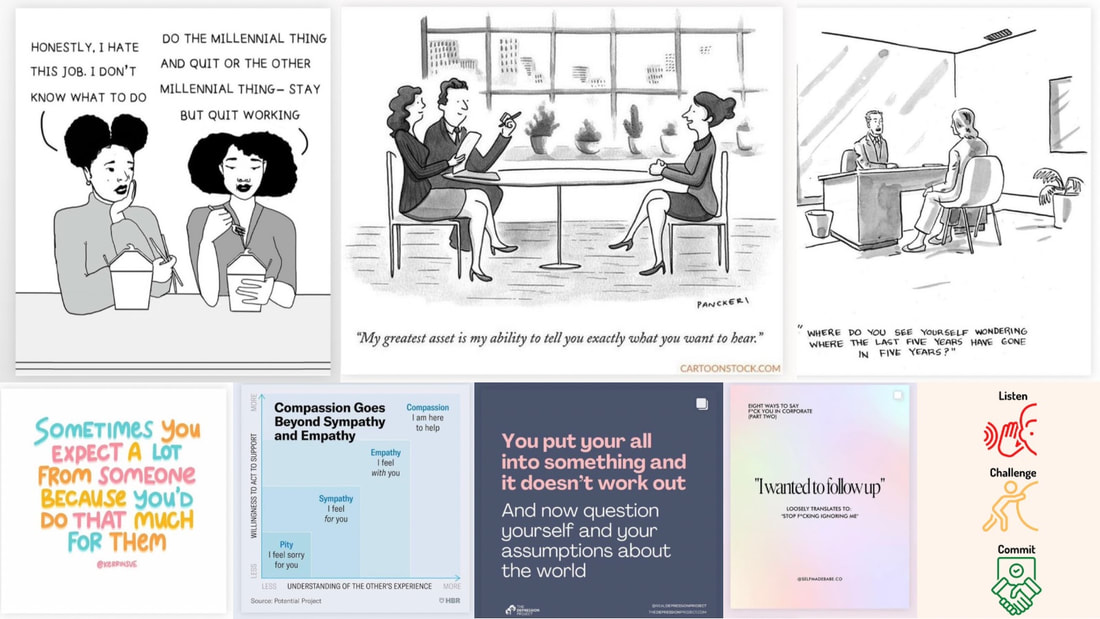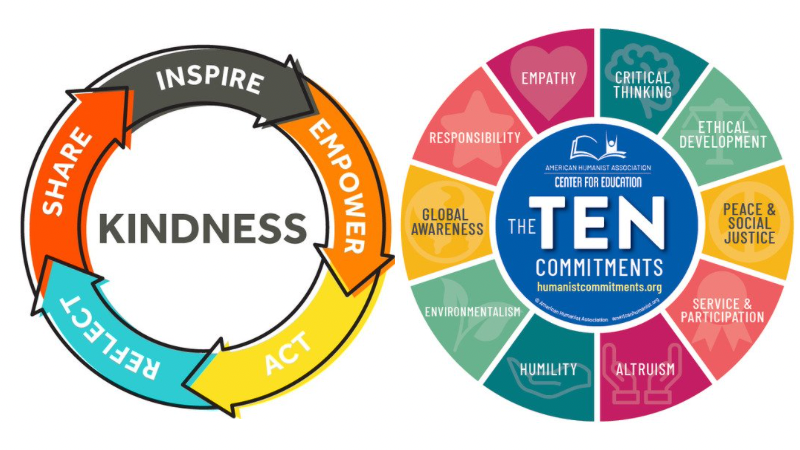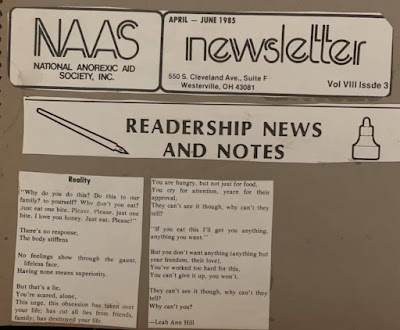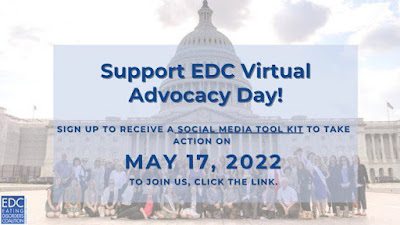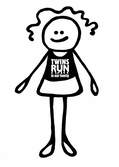 Humane Rejection Letters: Be Kind, Be PersonalBy Leah Connor on 4/26/2022
Humane Rejection Letters: Be Kind, Be PersonalBy Leah Connor on 4/26/2022I think I’ve applied for at least 500 jobs (more than half of those via LinkedIn’s Easy Apply feature which makes it super quick and simple).
Although I don’t keep a record of every single job application, I do have an extensive spreadsheet with data on all of my interviews, including the rejection letters.
Since I’ve turned 50, I’ve had conversations with over 50 companies and the vast majority have sent me generic and impersonal rejection letters, often only after I followed-up asking for an update.
The more templated form letters I receive after interviews, the more I find this to be completely unacceptable and unnecessarily demoralizing.
I’m not a HR expert, but I’m a human being and I know that I share a lot about myself and my experiences in every interview. It would mean so much to me if I would receive a message referencing something positive and unique about our interaction rather than an impersonal template letter.
I strongly believe that if you meet with someone for an hour, especially if it’s more than once, there’s absolutely no excuse for a generic rejection.
I’ve actually received better rejection letters from companies that I never spoke with than I have from places I met on 2-3 separate occasions. In retrospect, I’m grateful that things didn’t work out with companies that aren’t kind in the interviewing process. It’s usually a sign of bigger human resources issues.
I believe the best systems for responding to applicants is to have an automatic email reply to all submissions that explains that they’ll only be contacted again if they are selected for an interview. It never feels good to get a rejection letter weeks or months later from a position. you never interviewed for and you almost forgot you applied.
For example:
Dear [first name],
Thank you for your interest in career opportunities with [company]. We are pleased that you have considered our organization as a potential for your future career endeavors.
Our team is currently reviewing your credentials for the [job title] opportunity and will contact you should there be an interest in discussing your qualifications further. Otherwise, your information will be kept on file for future consideration.
Again, we appreciate your interest in [company]. We wish you much success in your job search.
Sincerely,
After my most recent rejection, I searched for resources on rejection letters to find that there are plenty of professionals who agree with me on the importance of being personal in a letter to someone you’ve met for an interview.
Here are some highlights:
For anyone with whom you’ve had a conversation (i.e., beyond an initial resume screen where you’ve had a first round phone screen), don’t use a generic letter from a job rejection letter template. This is one I feel very strongly about. If you’ve had more than a five minute conversation with someone, you should be able to specify briefly why the candidate hasn’t made it to the next round. By adding even one point referencing your conversation from the interview process, you’ll provide a basic rationale to your decision related to her own candidacy.
The deeper in the recruiting and hiring process someone goes, the more you “owe” them am actual specific rationale for your decision. Particularly, if someone’s had any amount of in person interviews, or even more so, have completed any type of assignment for you as part of the evaluation, there’s no excuse for not providing some level of personalization. The candidate took time to prepare, engage with you recruiters, travel to your office, possibly reschedule other commitments or obligations, etc. They’re receiving potentially bad news now; be respectful of her efforts and appreciative of her interests in your company.
Source:
indeed.comPersonalise the rejection letterToo often, generic templates are sent to unsuccessful candidates where they not only sound robotic, stiff and dishonest but display a negative and poor representation of the company and recruiter.
When sending rejection letters,
personalise it by mentioning something positive you noted during the interview, and make sure their name is spelled correctly; attention to detail shows you made an effort. Of course, it’s understandable that recruiters may be dealing with 50 job openings at any given time and
managing hundreds of candidates waiting for a response. But try and see it like this: your candidate could one day be your client, consumer or employer.
Source:
Job AdderThe Effect of Different Rejection Letters on Applicants’ ReactionsOrganisations appear to pay little attention to rejection letters, considered a special form of organisational communication, despite a growing body of literature that shows they play an important role in terms of employer branding. This study aims to empirically test how applicants’ perceptions are affected by differently manipulated rejection letters. In detail, a sample of 138 rejected candidates filled in an ad hoc questionnaire on perceived selection procedure fairness and satisfaction, after receiving a rejection letter where we had manipulated time latency, the politeness formula and customisation. Results suggest that providing a timely, customised and informal notification is something agreeable, which is able to affect, above all, fairness perceptions and intention to re-apply. In detail, the time latency in giving feedback appears to affect the relationship between fairness perception and organisational recommendation and acts more as a mediator rather than an antecedent variable. Considering that providing feedback is a relatively low-cost activity that at the same time has a big impact on job applicants, our results show that organisations should be sensitive to negative feedback communication, especially in relation to response time, in order to support their employer branding.
Source:
behavioral sciencesThe candidate took time out of her week to prepare for your interview process, so if you were impressed by her during the interview, it could make a huge difference to let her know. Simply include one strength of hers you remembered from the interview process, like "Our team was particularly impressed with your writing skills."
To truly add value, however, you'll also want to include constructive feedback to help your candidate understand areas she can focus on improving. Take detailed notes during the interview, and when you reject your applicant, provide one or two areas of improvement. Your feedback could help her career success in the future.
Source:
HubSpotBe personalTemplates make things much more manageable and assure that you address everything that you need to in each rejection. Leave sections in your templates for personalization. Mention the candidate’s name in the opening and sign the message with your own. Take ownership over the rejection, rather than just hiding behind your company’s name. If you’ve spoken with them or they’ve gone through the process, mention something from your conversation if you can. Providing personal details helps the candidate feel like they are more than just a number to you and can soften the rejection blow.
Source:
Nicereply.
Be kind Spending a little time reflecting on a candidate's experience can make the job seeker feel your decision is considered and fair. A rejection with no explanation can lead to confusion, frustration, and upset.
Offer feedbackA lot of companies don’t give feedback as a policy to prevent themselves from possible lawsuits. However, a little goes a long way, and you don’t have to be incredibly specific to give the candidate something of value. However, if you want to go the extra mile, tell them why you chose someone else and why the were not a good fit for the role. Good candidates will appreciate the opportunity to better themselves professionally. Plus, reading an “it’s not you, it’s us” type rejection letter can help soothe the ego hit of getting rejection after rejection. You never know, it could be the very thing that pushes them in a totally new career direction!
Source: toggl


%20(2).png)

